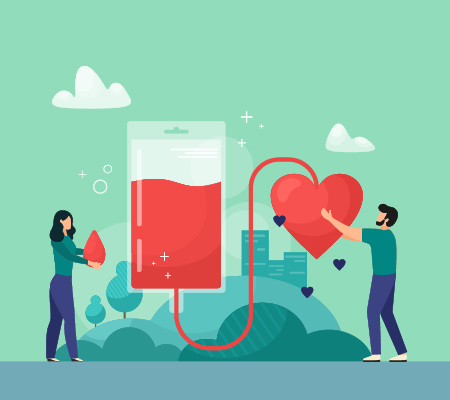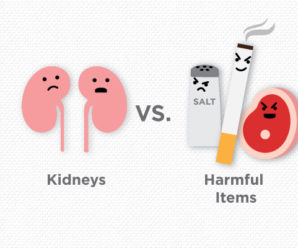Editor’s note: This article was published on April 24, 2020. COVID-19 information and recommendations are subject to change. For the most up-to-date information, visit the Centers for Disease Control and Prevention (CDC) website or view our most recent COVID-19 blog posts.
How can you help in these times of novel Coronavirus (COVID-19) and beyond?

Consider donating blood.
Though many blood drives around Wisconsin and the country are cancelled due to the novel Coronavirus (COVID-19), you may find opportunities to donate in or near your community. And if not now, hopefully soon, said Becky Brown, Blood Program account representative, Versiti of Wisconsin.
“Normally we run at least one blood drive a day,” she said, “and that has definitely changed.”
Versiti supplies blood products to Marshfield Clinic Health System for patients in need. The good news is blood supplies have generally been stable and inventories maintained since health care organizations have put elective surgeries on hold, according to Dr. Gene Shaw. Shaw is a pathologist specializing in laboratory hematology for the Health System and a blood donor himself. “Another factor is there are fewer people driving, so that should result in fewer motor vehicle accidents and fewer patients needing blood because of trauma.”
Donations up … then down
“Initially, when COVID first started,” Brown said, “we had so many people donate across our communities, especially loyal blood donors, which helped maintain our supplies. But then numbers significantly fell off so we rely on our hospital-based drives.”
You’re still encouraged to donate and safety is a top concern. Social distancing is being practiced for safety. Employees are masked and wear gloves, so there is no risk to the donor.
“Also, we’ve implemented a pod system for our employees,” she said. “We have teams of four to five employees that work specific drives together to minimize possible spread of the virus.”
Providing safety
Any scheduled drives are being conducted by appointment only, so no walk-ins. This is done to maintain social distancing and provide safety for donors and staff. For the time being, most business and community drives are cancelled but some have been scheduled in medical facilities.
“Our hope is to be able to ramp up donations for summer months, focusing on June since we anticipate hospitals may start to increase the number of surgeries then,” Brown said.
Summer typically is a difficult time for blood donors because of vacations and no school but there is hope that people will respond, especially those willing to become first-time donors.
Convalescent plasma
Shaw is interested in seeing preliminary results of convalescent plasma as a treatment for people with most severe COVID-19. Those who recover from the illness have antibodies to the disease in their blood, he explained. This can provide protective immunity, which may be long-lasting. From one donor patient’s plasma two patients may be treated.
Researchers hope convalescent plasma, if given to patients with severe disease, will help them fight the virus until their immune system kicks in. If it proves successful, Shaw anticipates blood centers and recovered patients will further ramp up services to provide this product.
To learn more about future blood drives, donation procedures, making appointments to donate and convalescent plasma donations, contact blood bank resources in or near your community, like Versiti and the American Red Cross.







Leave a Reply